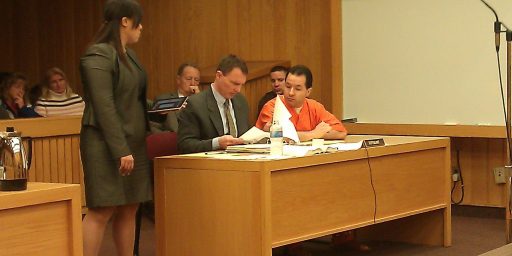Kerry’s Intelligence Vote
Bob Novak revives a longstanding (March was a long time ago in the information age) charge against Senator John Kerry–that he even though he has been chargin g that President Bush has not done enough to bolster our human intelligence assets, Kerry voted to gut them a decade ago.
Under attack by Republicans for proposing deep cuts in the intelligence budget a decade ago, John Kerry is trying to justify them as efforts to slice away pork. The problem is that during the Senate debate on Feb. 19, 1994, Kerry was taken to task by two pillars of the then Democratic majority: Dennis DeConcini of Arizona and Daniel Inouye of Hawaii.
DeConcini, the Intelligence Committee chairman, and Inouye, the Appropriations Defense subcommittee chairman, assailed Kerry’s unsuccessful efforts to cut the intelligence budget. DeConcini calculated it would cost $1 billion in intelligence spending that year and $5 billion over the next five years. Both senators suggested Kerry did not recognize the dangers existing then after the first terrorist attack on the World Trade Center. In opposing Kerry’s amendment, DeConcini declared, ”We no longer seem immune from acts of terrorism in the United States.” Inouye asked: ”Is this the time to cut the satellite programs that give our forces warning of attacks?”
Since George W. Bush’s re-election campaign has made this dispute an issue, Kerry has faced a choice. He could admit an error in past judgment, which is never easy or perhaps prudent for a presidential candidate. Or, he could defend what seems a politically vulnerable position. Kerry has taken the latter course. When this column asked about Kerry’s past position this week, campaign spokesman Chad Clanton replied: ”You bet, John Kerry voted against business-as-usual in our intelligence community. It is no secret that we’ve got some serious problems with our intelligence.”
***
In the floor debate, DeConcini said his committee had pruned the intelligence budget by $1.2 billion for that fiscal year, and that is ”as deep as the intelligence community can withstand.” Noting imminent bombing in the Balkans, Inouye warned ”we are putting blindfolds over our pilots’ eyes.”
In the debate, Kerry did not respond to criticism from DeConcini and Inouye. He did not address intelligence specifically, much less single out pork in the intelligence budget that his campaign now says he was targeting. However, 10 days earlier on the Senate floor, Kerry declared: ”The madness must end.”
Kerry’s amendment failed 75-20 — opposed by his Massachusetts colleague, Sen. Edward M. Kennedy; a future Intelligence Committee chairman, Sen. Bob Graham of Florida, and the Appropriations Committee chairman, Sen. Robert Byrd of West Virginia.
The senator is described by aides as attempting to restore human intelligence to learn about terrorism, drug trafficking and international crime. But at an Intelligence Committee meeting in 1995, Kerry asked ”whether we should use paid clandestine human assets in situations where the ramifications of discovery are so great and the risk of U.S. security is so minimal.”
Such suspicion of human intelligence had been the liberal line since the early 1970s, grinding down CIA assets. Indeed, Kerry’s assault on intelligence spending had been urged by liberals for the past quarter of a century. The presidential candidate now attempts to rationalize his past conduct rather than repudiate it.
I suspect this issue is sufficiently complicated and obscure as to be minimal as a voting issue in November. Still, this points to why legislators have such a difficult time getting elected president–they’ve got a lot of votes on record over a long period. Many of them aren’t something one wants to defend a decade hence.




I suspect this may be the type of year when a legislator’s exhuastive and necessarily contradictory voting record may not matter. Voters are hyper-focused on three issues: Terrorism Defense, Iraq and the Economy. If Kerry can forcefully present reasonable and sensible plans on these fronts, I think the public (other than harcore Bush supporters) won’t care about his voluminous voting record. Further I think there is a real sense in the country that something changed after 9/11. That’s in part why the public is not calling for a public lynching of Bush and his administration for not stopping the attack. It’s also why they aren’t going to be terribly interested in hearing about a vote Kerry made 15 years ago. And let’s remember it’s Bush who is wrapping himself in how the world changed, so it’s inconsistent for him then to point to Kerry’s past. If he continues to do so, the danger will be for Kerry to point to Bush’s past of running an administration that had information which could have stopped 9/11.
—